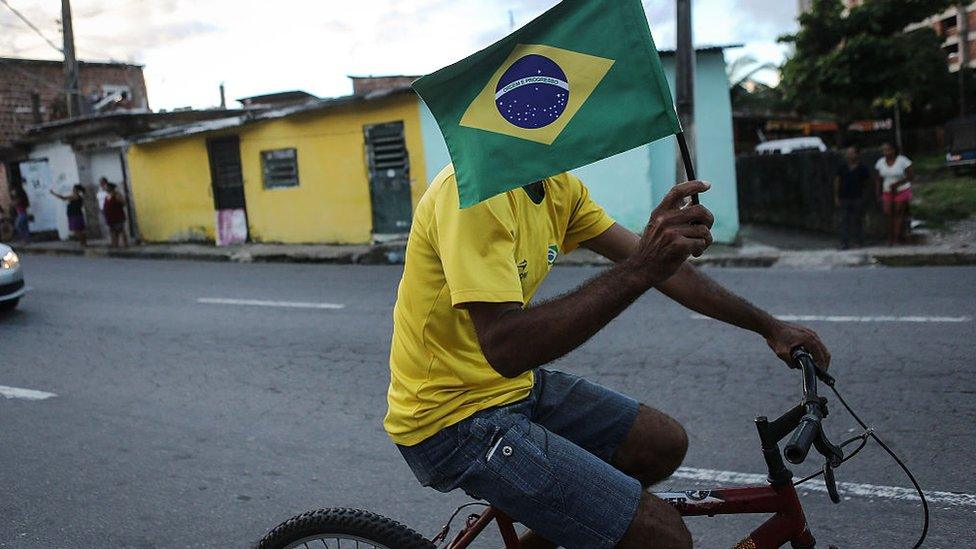Brazil's economy shrinks for fifth consecutive quarter
- Published

Brazil's economy continued to shrink in the first quarter of 2016, contracting by 0.3%.
It was the fifth consecutive quarter in which the economy has shrunk.
However, the figure was not as bad as the 0.8% contraction that had been predicted by economists.
As well as its worst recession in decades, Brazil is grappling with political crisis, following the removal from office of President Dilma Rousseff pending an impeachment trial.
The Instituto Brasileiro de Geografia e Estatistica (IBGE) also said that Brazil's GDP fell by 5.4% year-on-year - which was also better than the 6.1% contraction forecast by Itau Unibanco.
Earlier, the Organisation for Economic Cooperation and Development (OECD) cut its economic growth forecast for Brazil, citing political and corruption concerns.
The Brazilian economy is now expected to contract by 4.3% this year, the OECD said.
Production fell in all the three main economic sectors: agriculture, industry and services.
Exports were a rare bright spot, however, increasing by 6.5% compared with the fourth quarter after a sharp fall in the value of the real.

Analysis: Daniel Gallas, South America business correspondent
Brazil's economy keeps on contracting sharply - one of the fastest reversals of fortune in the emerging world.
The question now is: has the economy reached the bottom, or will it fall even further?
The deep cuts that Brazil's interim government plans to implement suggest things will get worse before they start improving.
Analysts believe Brazil's best chance of exiting recession are still a year away.

Neil Shearing, chief emerging markets economist at Capital Economics, said the smaller than expected contraction was only due to a rise in government spending.
It rose 1.1% quarter-on-quarter, reflecting what he described as "a last-ditch attempt by the Dilma administration to win back public support".
"With fiscal policy set to tighten over the second half of the year, this prop to the economy will go," Mr Sheaing added.
Brazil's interim president, Michel Temer, said on Wednesday that his government would not cut spending on health and education, but warned that sacrifices were needed to balance the books and restore the economy to growth. The country has a huge budget deficit and 11 million unemployed.
"There is no longer any room in Brazil for a bloated and inefficient state," he said in a speech on Wednesday.
Ms Rousseff was suspended last month to face charges of breaking budget rules. A Senate trial will probably continue until September, fueling political uncertainty.